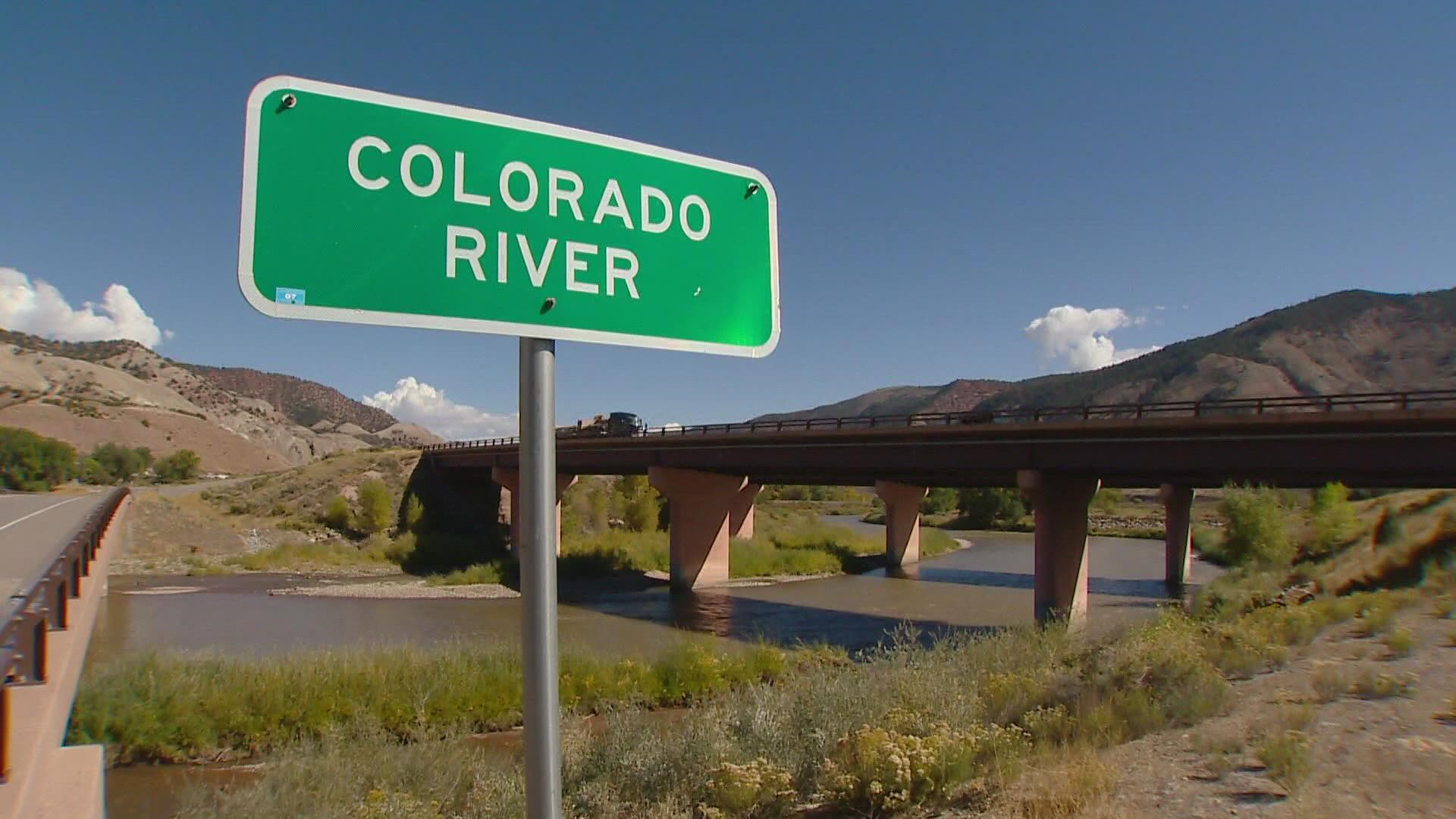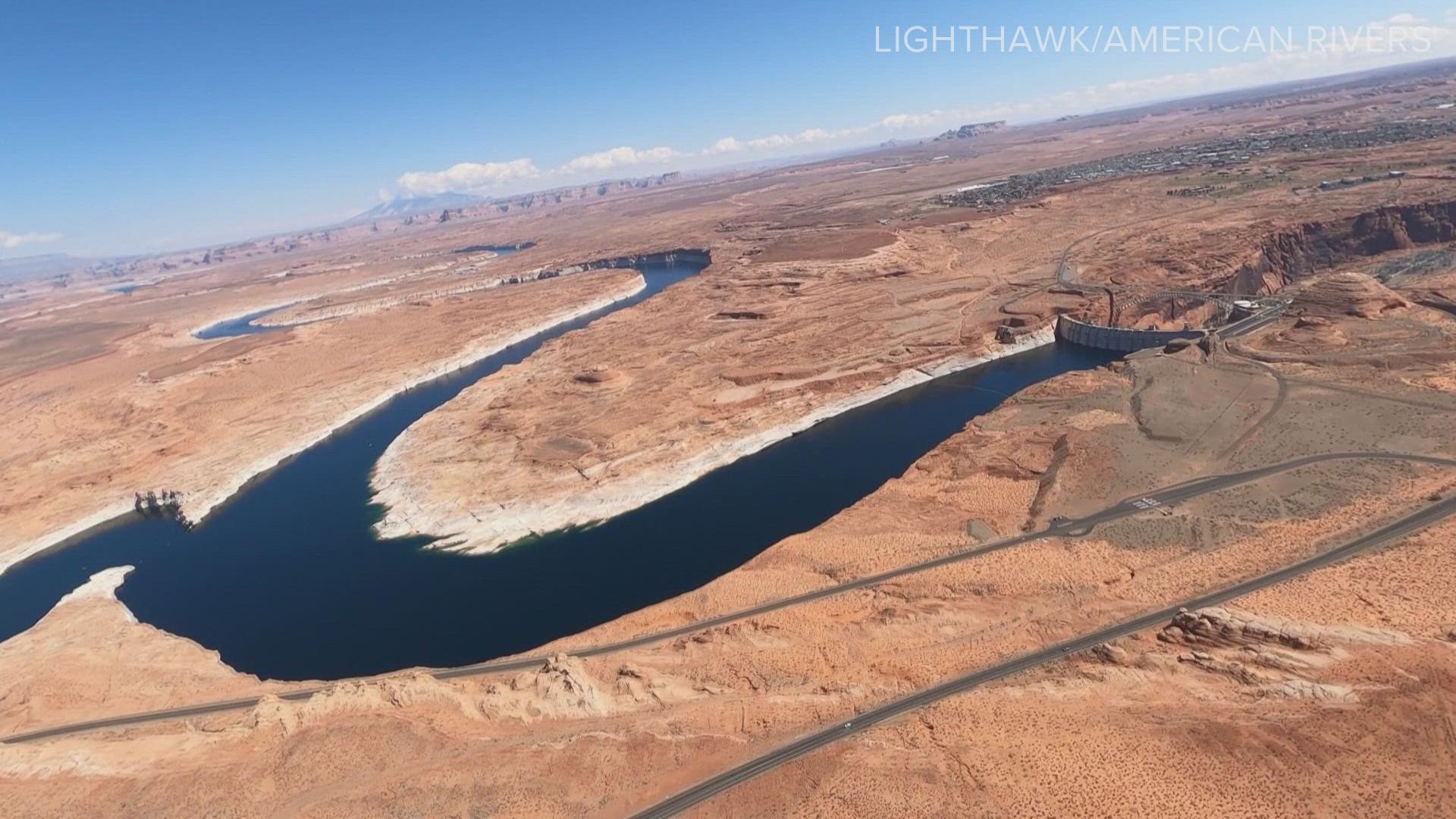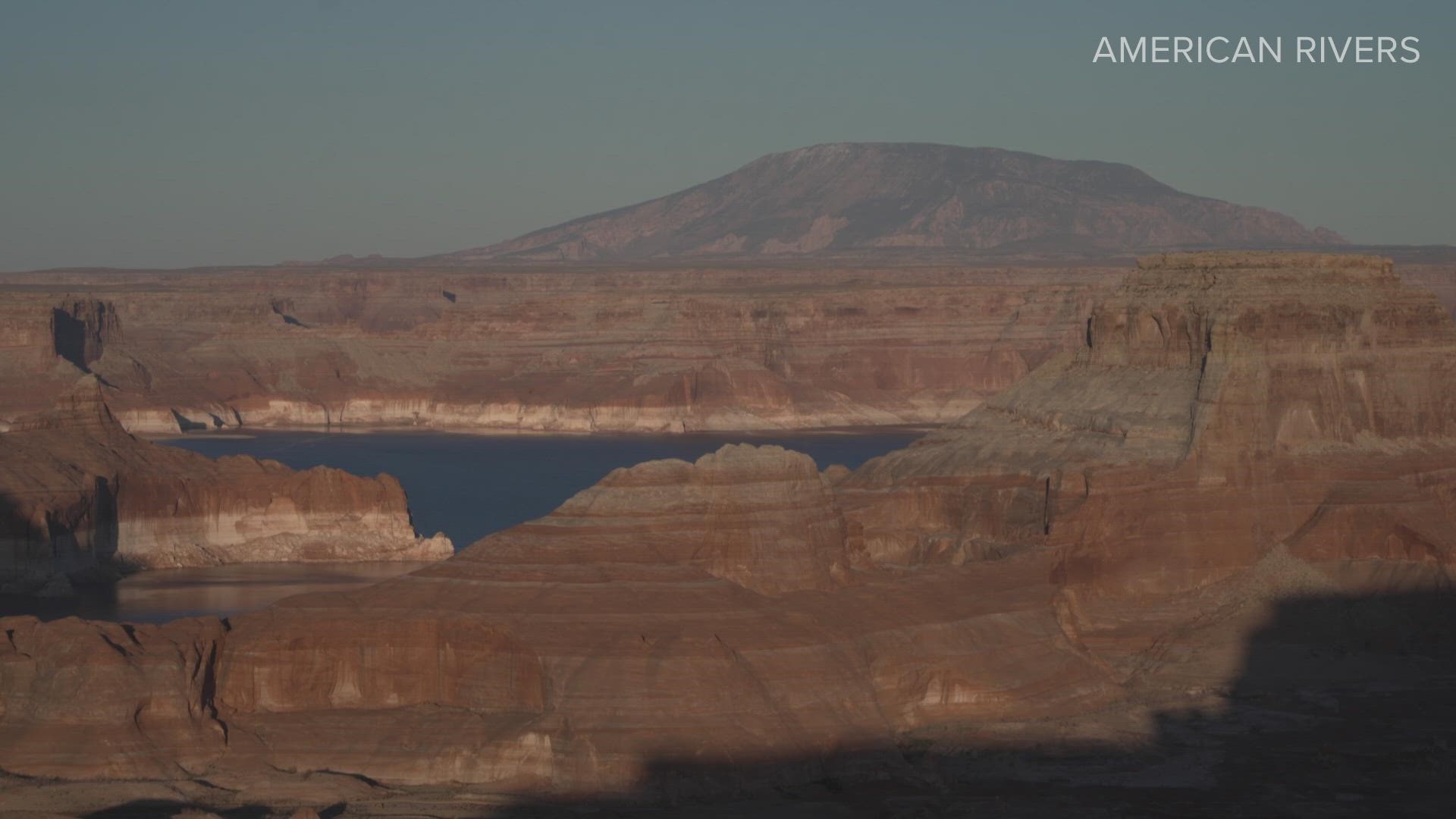COLORADO, USA — When it comes to water use, we're not living within our means.
"The Colorado River is in a crisis. We are using vastly more water than the river can provide," said Bart Miller, healthy rivers program director for Western Resource Advocates. "The math is really clear. It's like a bank account where you're taking out more than you're putting in."
The seven states that share the Colorado River are trying to figure out how to conserve 2-4 million acre-feet of water to protect critical elevations at Lake Powell and Lake Mead.
“2-4 million acre-feet is like a quarter of the entire annual supply of the Colorado River," Miller said. “They’re basically saying we need to cut back our use about 20-25% of what we’re currently taking and pulling out of the Colorado River.”
Bureau of Reclamation Commissioner Camille Touton asked river basin states to make a plan to cut water use by mid-August.
"Yesterday's deadline came and went without much by way of commitment," Miller said. "The upper basin states had a plan with a few elements, which were fairly modest, and the lower basin did not have a plan at all. In fact, you saw some letters from the state of Arizona saying, 'We tried. We had some ideas. They were rejected,' and you had the Southern Nevada Water Authority, which is Las Vegas, expressing a lot of disappointment that the states didn’t come together on a plan."
He said among other things, the upper basin states -- Colorado, New Mexico, Utah and Wyoming -- suggest re-authorizing a pilot program from eight years ago that pays people like farmers to use less water.
“When that program was implemented back in 2014, it ran for about three years and it got to the level of about 20,000 acre-feet per year and it paid people to reduce the use. So it was fairly small scale," Miller said. "The notion of re-authorizing it is a good idea, but that program would have to expand probably about tenfold to be able to get a lot of the potential reductions."
He said the upper basin states' plan is a good first step, but it's not enough.
“For me, it just says a lot of work has been done, but the fruits of that have not been a clear plan yet. So I think the next couple months will be really telling for what the states can put together," Miller said. “The plan going forward definitely needs to involve cities, as well as farms and ranches and industry. Anyone who uses water from the Colorado can be part of the solution.”
Tuesday, the U.S. Department of the Interior announced that some states will have to cut their water use starting in January.
“They’re basically asking Arizona to cut back significantly, about 60,000 acre-feet, about 20% of their supply," Miller said. “The upper basin states are more affected by the call to action that the commissioner announced two months ago. She reiterated yesterday that we need to do a lot more and we need to do it quickly, and that’s something she said all states and all water use sectors need to chip in and be part of the solution.”
Nevada will have to cut 25,000 acre-feet and Mexico will have to cut 104,000 acre-feet of water, beginning in 2023.
"If we don't take action in the short term, literally in the next year, those reservoirs, Lake Powell and Lake Mead, will continue to drop, and the concern is they'll get down to critical levels," Miller said.
Critical levels at Lake Mead and Lake Powell would mean they're not able to generate hydropower or deliver water farther downstream.
"I'm concerned, but there's still time to fix this," Miller said. "I think we really have to think about accelerating the scale in which we do conservation all across the basin."
The Colorado Water Plan is currently in its public feedback stage. They're taking comments on the Colorado Water Conservation Board's website.
SUGGESTED VIDEOS: Colorado Climate



